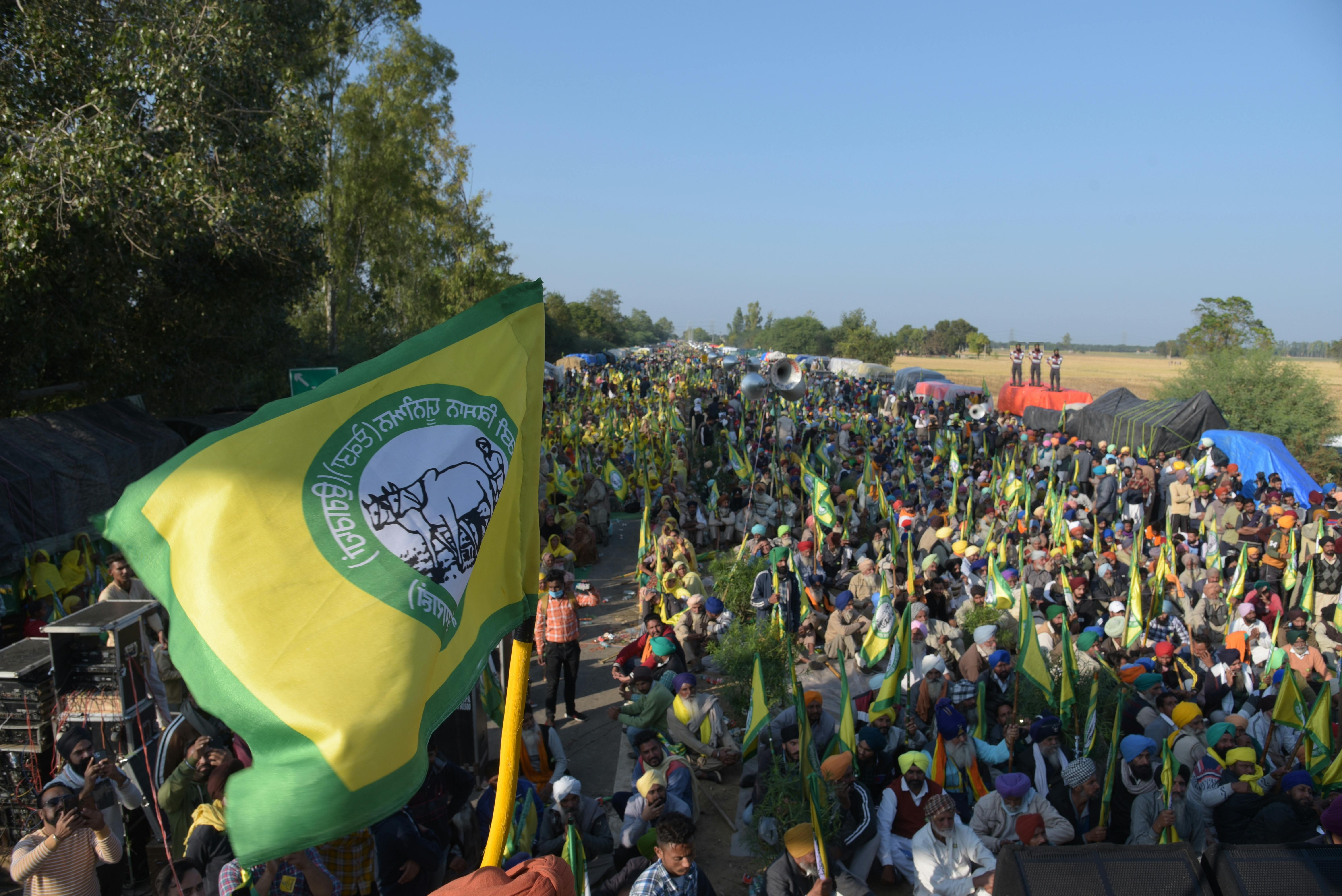This article was originally published on the RESULTS Brighton blog and removed to protect advocacy partners in India.
Farmers in India have been passionately protesting the Indian government’s reforms upon the agricultural sector since August 2020. These protests have spread to become the largest in human history, an international grassroots movement and are incredibly deserving of international concern. Although most of the farmers protesting have originated from Punjab and Haryana, protests have occurred across Indian states, and internationally. There have been rallies in the UK, Amsterdam, Canada and the US, where there is large support from the Indian diaspora. Protestors in India, have been met with tear gas and the illegal detainment of activists and protestors, at the hands of the Indian police.
Silence on these human rights violations is complicity to the highest degree. The three proposed laws leave the farmers open to the exploitation of large corporations, by putting the Minimum Support Price (MSP) which acts as a minimum price floor for farmers to sell at, into jeopardy. Without the MSP and the security of state-controlled rates, farmers will be forced to sell crops for incredibly low prices, with little another choice, endangering their livelihoods. The longer these protests continue, the higher the risk is to the food supply, given India is one of the largest exporters of rice, cereals, milk, fruit and vegetables. Worryingly, there is no clear end in sight to these protests.
India’s first Prime Minister, Nehru recognised the importance of ‘diversity in India,’ and yet what we continue to witness from the Modi government, is far from an appreciation for this diversity. Instead placing an emphasis on division and an exclusionary agenda, mirroring the divide and rule tactics used by the British during colonisation. Modi has capitalised on existing differences, turning religious groups against each other, and stoking culture wars. His version of India is an India that resembles himself, caste privileged Hindus. Modi’s Citizenship Amendment Act already allows fast-tracked citizenship for non-Muslim migrants coming from neighbouring countries.
Has India really moved forward from the time when family members would hide Muslims in their houses during Partition? Is this the India dreamed of in the aftermath of independence?
India has instead become a ‘world divided in two,’ that is ‘inhabited by different species,’ as Fanon would put it. Your humanity, either recognised or not, your life deemed worthy or disposable. Intentional othering done to those who India is supposed to be home to. In this way India’s independence recreated the coloniser and colonised the dynamic but with caste privileged Hindu’s at the top of the hierarchy. So, when you hashtag, (as Modi’s followers are doing,) #IndiaTogether, ask yourself, when has India actually ever been together? While his fans burn effigies of Greta Thunberg, Meena Harris and Mia Khalifa, farmers continue to die at the hands of Modi and his government, and their privileging of big business. The protests threaten their reign, and in response they preach unity to those who have been marginalised and exploited at their hands. The facade of the largest democracy in the world is unravelling in front of the world’s eyes, like cheap branding.
The movies that Sikhs cling to as representation of our communities, such as ‘Singh is King,’ do not even cast Sikhs. From the father in ‘Bend it like Beckham,’ to ‘Keshari,’ Sikh attire, our culture and religion has been consistently appropriated by Bollywood actors for profit. Yet, when the time comes to advocate for the very groups that they seek to represent, then we are faced with silence, ignorance or outward condemnation.
Recent tweets by singer Rihanna and climate activist Greta Thunberg of support for the protesters, were met by a storm of tweets from Bollywood personalities, actors and directors in opposition to their support. Some of the most outrageous tweets came from Kangana Ranaut, many of them taken down by Twitter for violating their guidelines. These included her insistence that the protesting farmers are ‘terrorists who are trying to divide India’. She praised the harsh force of the police on protestors, which had her feeling ‘so elated,’ as the ‘cancer in the body of this nation we were looking for has been located, identified,’ and called for the ‘process of eradication.’ This narrative of terrorism has been falsely constructed by the Indian government itself. Yet, the support of Bollywood actors including Kangana for Modi and his government, exposes true hypocrisy. As two Punjabi Sikh women writing this article, whose families lived through the Sikh genocide of 1984 orchestrated Indira Ghandi’s government and her ‘Operation Blue Star’, it is beyond troubling to see the continuation of ongoing oppression.
The narrative the Indian government pedals is one of the protesters being falsely equated to terrorists. Yet, it’s an open secret in India that if you criticise the government, you may just go missing one day. This label has long followed anybody critical of the government in India, especially Sikhs calling for a separate Sikh state called ‘Khalistan,’ in Punjab. You don’t have to look much further than the case of Jagtar Singh Johal who is still imprisoned now. Even though Sikhs have suffered ongoing oppression and marginalisation in India, it is only when faced with these calls, unity suddenly becomes important. Why is this independence movement framed differently from other independence struggles? The farmers' protests sadly fit too well into ongoing oppression suffered by Sikhs, and although the movement has spread all over Indian states, the centrality of Punjab (which has a majority Sikh population) within this movement is no coincidence.
These protests reveal whose lives are seen as disposable, and whose lives have value. Through the lens of mainstream India, the everyday violence suffered by marginalised groups does not matter. All that matters is the manifestation of this in protest against it which is portrayed as violent and terroristic and then securitised accordingly. Mass internet shutdowns have ensued at protest sites in Delhi, the press has been censored, food and water supplies blocked from reaching protest sites in an attempt to starve protestors. The violent use of water cannons, batons and tear gas has already left hundreds injured and many fatalities. Instead of seeing the humanity in the protestors, they are seen as a threat to the exclusionary state that they will fight to preserve.
The nature of policing intersects with its relation to marginalised identities. During the protests, arrests have included that of Nodeep Kaur, a Sikh, Dalit, labour rights activist. Nodeep Kaur was put at risk not only by her activism but the intersections of her identity as a Dalit Sikh woman. The police act as a force to legitimise those in power, but whose lives do they really protect, and who is put in danger because of them?
These protests should be seen as an outcry against the damages of neoliberalism, wanting to remove the minimum support price for farmers leaves them in a far more vulnerable position than before and open to the exploitation of private companies.
This has become an international grassroots movement built from communities coming together, and it has mirrored issues that are not just Indian, of a concentrated elite group benefitting at the mass expense of people. The issues this movement sheds light upon, sadly fits a commonality of experience, from the harms of capitalism, policing, the carceral state, the securitisation of dissent, and the ongoing oppression faced by marginalised groups in exclusionary states.
How can you help?
AMPLIFY: amplify the voices of farmers. Contact your local officials and MPs and pledge for them to publicly show their support for farmers. Share content on your social media as this raises more awareness of this issue.
PROTEST: organising and attending protests (in a COVID-19 safe manner) have shown to be extremely crucial to the movement.
BOYCOTT: boycott brands that Ambani and Adani have invested in; these are 2 of the richest men in India who are set to make financial gains at the expense of farmers. Boycott Bollywood for their lack of support and outright fascism and hatred towards the farmers' protests.
EDUCATE: there are some really great resources linked below that teach you more about this issue.
DONATE: donating to charities such as Khalsa Aid who are at the grounds of the protest in Delhi feeding hundreds of thousands of protestors.
Resources:
https://farmerprotests.carrd.co/
https://www.khalsaaid.org/donate/
@sikhexpo on Instagram
@savingpunjab on Instagram

